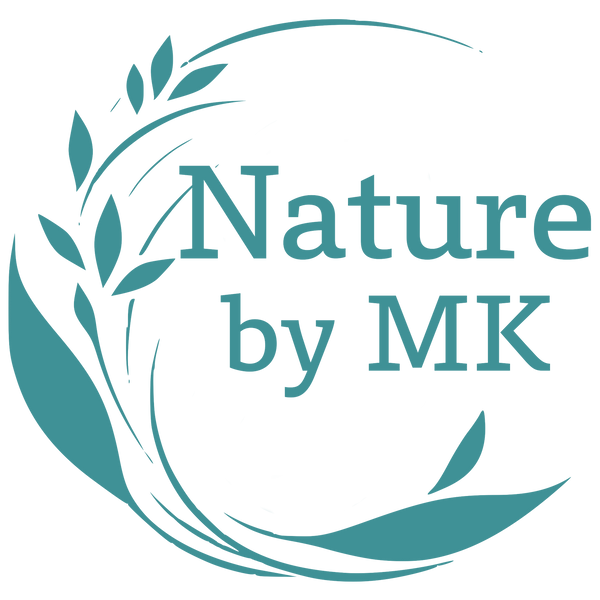Dry scalp is a common condition that affects many women, especially in the colder months. It can cause itching, flaking, irritation, and even hair loss. But don't worry, you're not alone. There are many causes of dry scalp, and many ways to treat it naturally and effectively. In this article, we'll explore some of the reasons why your scalp might be dry, and share some of our favorite products and tips to help you restore your scalp's health and beauty.
What Causes Dry Scalp?
Dry scalp occurs when the skin on your head loses too much moisture, leaving it dehydrated and vulnerable to external factors. Some of the common causes of dry scalp are:
• Harsh hair products: Many shampoos, conditioners, styling products, and hair dyes contain chemicals that can strip your scalp of its natural oils and disrupt its pH balance. These products can also cause allergic reactions or contact dermatitis, which can lead to inflammation and itching.
• Weather and environment: Low humidity, cold temperatures, wind, and artificial heating can all dry out your scalp and make it more prone to irritation. Exposure to sun, pollution, chlorine, and hard water can also damage your scalp and hair.
• Aging: As you get older, your skin produces less oil and becomes thinner and drier. This can affect your scalp as well as your face and body. Hormonal changes, such as menopause or pregnancy, can also affect your scalp's moisture levels.
• Diet and lifestyle: What you eat and drink can have a big impact on your scalp's health. Not drinking enough water, consuming too much caffeine or alcohol, eating processed or sugary foods, smoking, or taking certain medications can all dehydrate your scalp and affect its functionhttps://www.medicalnewstoday.com/articles/dry-scalp. Stress can also trigger or worsen dry scalp by affecting your blood circulation and immune system.
• Skin conditions: Sometimes, dry scalp can be a symptom of an underlying skin condition, such as psoriasis, eczema, seborrheic dermatitis, or fungal infections. These conditions can cause redness, scaling, flaking, itching, or inflammation of the scalp. If you suspect you have a skin condition that affects your scalp, you should consult a dermatologist for diagnosis and treatment.
How to Treat Dry Scalp Naturally?
If you have dry scalp, you might be tempted to scratch it or use more products to cover it up. But this can actually make things worse by irritating your scalp further or clogging your pores. Instead, you should try some of these natural remedies to soothe your scalp and restore its moisture balance:
• Switch to gentle hair products: Look for shampoos and conditioners that are free of sulfates, parabens, silicones, fragrances, and other harsh ingredients that can dry out or irritate your scalp. Choose products that are pH-balanced and contain natural moisturizing ingredients, such as aloe vera, coconut oil, shea butter, honey, or glycerin. We love the [goop Beauty G.Tox Himalayan Salt Scalp Scrub Shampoo] and the [goop Beauty G.Tox Detoxifying Superpowder Scalp Treatment], which gently cleanse and nourish the scalp with Himalayan pink salt, moringa oil, rosemary oil, charcoal powder, and peppermint oil.
• Use a scalp mask: Once or twice a week, treat yourself to a hydrating scalp mask that can replenish your scalp's moisture and soothe any irritation. You can make your own mask at home with ingredients like yogurt, avocado, banana, olive oil, honey, or apple cider vinegarhttps://shop.goop.com/shop/products/goopglow. Or you can try the [goop Beauty G.Tox AHA + BHA Resurfacing Acid Peel], which exfoliates and moisturizes the scalp with glycolic acid,
salicylic acid, hyaluronic acid, and Australian kakadu plum.
• Massage your scalp: A gentle scalp massage can stimulate blood flow to your scalp, which can help deliver nutrients and oxygen to your hair follicles. It can also relax your muscles and reduce stress, which can benefit your scalp's health. You can massage your scalp with your fingers or use a tool like the [goop Beauty G.Tox Ultimate Dry Brush], which has natural sisal fibers that gently exfoliate and massage the scalp.
• Apply a natural oil: Natural oils can moisturize, protect, and heal your dry scalp. They can also add shine and softness to your hair. Some of the best oils for dry scalp are coconut oil, jojoba oil, argan oil, olive oil, and castor oil. You can apply a few drops of oil to your scalp before shampooing or leave it on overnight as a deep conditioning treatment. You can also add a few drops of essential oils, such as lavender, tea tree, rosemary, or peppermint, to boost the benefits and aroma of your oil.
• Drink more water: One of the simplest and most effective ways to treat dry scalp is to drink more water. Water helps hydrate your skin from the inside out and flush out toxins and impurities that can affect your scalp's health. Aim for at least eight glasses of water a day, and avoid drinks that can dehydrate you, such as coffee, alcohol, or soda. You can also boost your hydration with foods that have high water content, such as fruits, vegetables, soups, and smoothies. For an extra dose of hydration and antioxidants, try Nature By MK Watercress and Hyaluronic Acid.
Dry scalp can be a frustrating and uncomfortable condition, but it doesn't have to ruin your hair day. By following these natural tips and using Nature By MK products, you can treat your dry scalp effectively and enjoy healthy, beautiful hair. Remember to be gentle with your scalp and hair, and listen to what they need. Your scalp will thank you for it.

